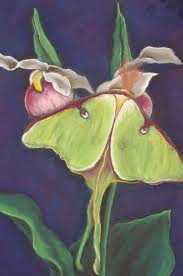 … And take upon’s the mystery of things
… And take upon’s the mystery of things
(King Lear, act 5, sc. 3)
It is good to be home in Portland, after a fast trip with three presentations in Genoa, Turin and Milan – presentations of my book, (title translated), “Our Daily Dante – 3500 ways to get away with it with Dante”. This is also a choral thank you to all who contributed to make the tour (if thus it can be called) successful, including the personalities who made the introductions, respectively at the Berio Library in Genova, the Villa Amoretti Library in Turin, and the Oberdan Conference Center in Milan.
The following thoughts are not particularly related to the quotation from which these notes take the inspiration, or, more familiarly the clue.
Genoa has kept its wonderful medieval section and walking through the narrow alleys is an invitation to remembrance of things past, to a virtual return to youth, not necessarily an age of happiness, but whose merits we often discover too late. The 19th century Italian poet, Guido Gozzano says in a poem,
“… The more I move
towards the other milestone, youth, I realize
you were as beautiful as a beautiful novel!”
(Come piú m’avanzo
all’altra meta, gioventú, m’avvedo
che fosti bella come un bel romanzo!)
However, up the steep hills, past the still untouched cobbled pathways, modernity has taken over. Fancy condominiums have replaced orchards, palms and broom. The view is still beautiful, spanning both sides of the Riviera, but the soul of the place is lost.
Up the road towards the high overlook called “Righi” an old mansion remains, called Villa Quartara – it still keeps a marble stone on the wall withlines from Dante’s Inferno – villa and stone have stood the test of over one century.
“Non era via da vestito di cappa,
che’ noi a pena, ei lieve e io sospinto,
potavam su montar di chiappa in chiappa” (Inf. XXIV, v.31)
which Longfellow translated as,
“This was no way for one clothed with a cloak;
For hardly we, he light, and I pushed upward,
Were able to ascend from jag to jag.”
Even more dramatically changed, not to say ruined, is the setting of the Villa Amoretti, the 18th century Palladian abode of the noble Amoretti family in Turin. Fortunately, the building has been beautifully restored and converted into an ideal library. However, villa and adjacent garden are surrounded by a circle of monstrous apartment blocks – dramatic ugliness. Indeed the crisis of the city become too big is but the mirror view of the decay of nature.
Which may perhaps cause or prompt us to reflect, like Lear, on the mystery of things, whereby, as a race we seem to have opted to ‘grow’ indefinitely and sacrifice to the Moloch of greed what did cost nothing simply because its beauty was priceless.
Suggestion for use. Elegant way to express that you have given up understanding. Equally elegant way out during a job interview when you don’t know an answer, in certain circumstances.
In the play. King Lear and good daughter Cordelia are confined to a prison by the evil Edmund. But Lear, happy to have finally found Cordelia and recognized her worth and virtue, finds the good of life even in a prison.
